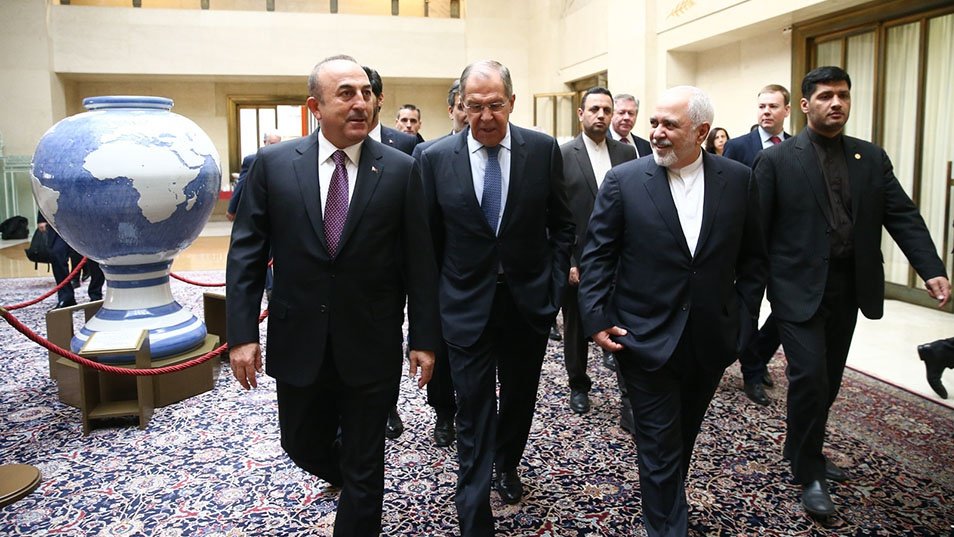Russia, Iran, Turkey Back New Syria Constitution Body but Fail to Agree Makeup

Russia, Iran and Turkey, supporters of the main sides in Syria's complex civil war, on Tuesday failed to agree on the makeup of a UN-sponsored Syrian Constitutional Committee but called for it to convene early next year to kick off a viable peace process.
In a joint statement read out by Russian Foreign Minister Sergei Lavrov after the trio met UN Syria peace envoy Staffan de Mistura in Geneva, they said the new initiative should be guided "by a sense of compromise and constructive engagement."
The foreign ministers of the three nations had hoped to seal their joint proposal on a committee — which could usher in elections — and win UN blessing for it.
But the statement by the three made no mention of the composition of the panel, pointing to lingering disagreement over lists of candidates submitted by Syrian President Bashar al-Assad and his rebel adversaries.
Mevlut Cavusoglu, speaking to Turkish state media, said only that the three powers had made "important contributions" to the creation of the panel and that suggested names were assessed.
"The UN will of course carry out necessary work on the nominated names in the coming process," Cavusoglu said.
De Mistura, addressing a separate news conference, made clear the three powers had not nailed down a workable political forum yet, after years of abortive attempts at ending a war that has killed hundreds of thousands of people and displaced around half of Syria's pre-war 22 million population.
'Extra mile'
"I believe there is an extra mile to go in the marathon effort to ensure the necessary package for a credible, balanced and inclusive constitutional committee, and for including a balanced chairing arrangement and drafting body and voting threshold — to be established under UN auspices in Geneva."
De Mistura, who steps down on Dec. 31 after four years, has struggled since January to clinch a deal on the identity of 150 members of the committee.
He said he would brief UN Secretary-General Antonio Guterres on Wednesday and the UN Security Council on Thursday. He expected his successor Geir Pedersen to build on his work and "focus on the purely political aspect" at the conflict's end.
President Bashar al-Assad's government and the opposition fighting to topple him have each submitted a roster of 50 names. But Russia, Iran and Turkey have haggled over the final 50 members from civil society and "independent" backgrounds.
Assad, whose forces have reclaimed most of Syria with Russian and Iranian support apart from Idlib, a northwestern province, has clung to power throughout the conflict and is widely seen as being loath to yield power after it ends.
The Damascus government has previously brushed off UN-led efforts to set up a constitutional committee.
Iranian Foreign Minister Mohammad Javad Zarif tweeted on Tuesday: "We [have] always insisted on a political solution led and owned by Syrians. The West has now been compelled to accept this. But it needs to facilitate; not dictate.”
Turkey supports rebels who control part of northwest Syria. A year ago, Turkish President Tayyip Erdogan described Assad as a terrorist and said it was impossible for Syrian peacemaking efforts to continue with him.
Cavusoglu said on Sunday that Turkey and other nations would consider working with Assad if he won a democratic election.
